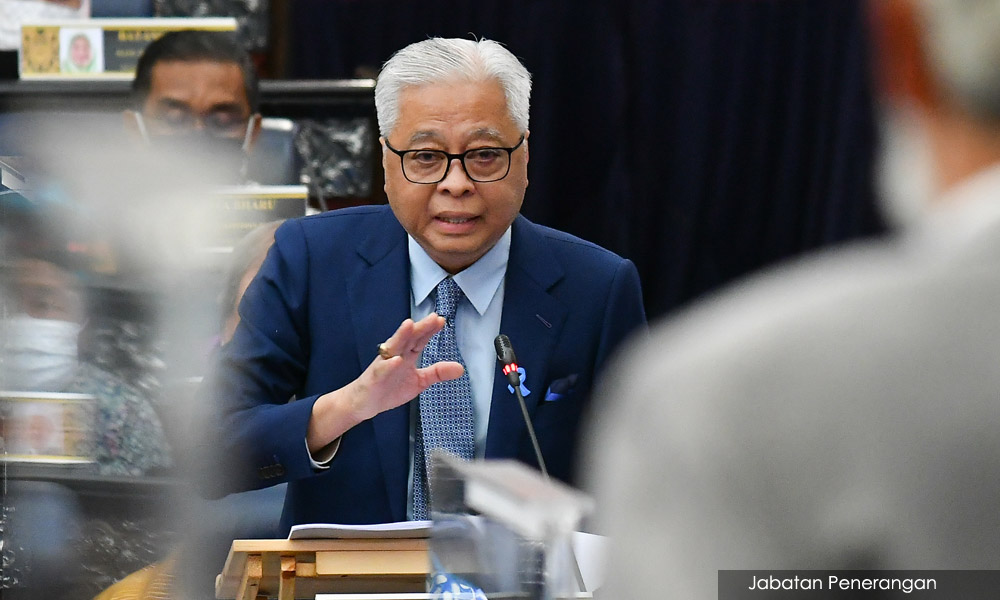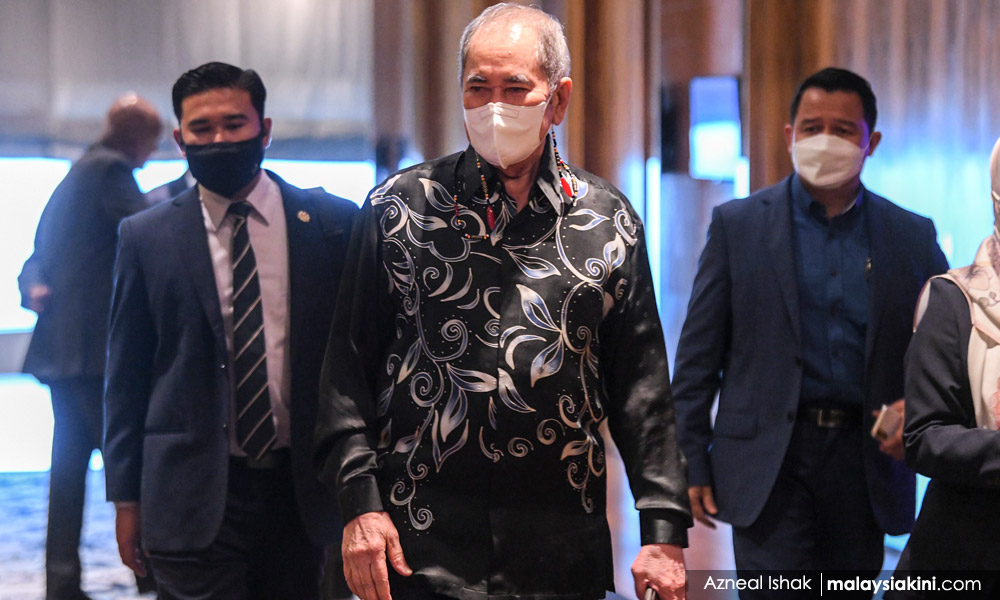It is indeed a sign of mature politics that the controversies surrounding and criticisms of the Constitutional amendment bill to introduce the anti-hopping law led to a full day of parliamentary debate with 59 MPs taking part and the set-up of a Parliament Select Committee on the matter.
The public got to hear the concerns of all participating MPs and parties, with no one objecting to it. They can also be convinced that the government is not simply dragging its foot on this.
The political wisdom of Prime Minister Ismail Sabri Yaakob, Minister in the Prime Minister’s Department (Parliament and Law) Wan Junaidi Tuanku Jaafar and the bipartisan Joint Steering Committee on Transformation and Political Stability, better known as the “MOU committee”, is commendable.
However, can anyone guarantee that the select committee would deliver a praiseworthy bill by end of May? It depends on whether the select committee is consciously avoiding the mistakes made by the MOU committee.
The anti-hopping law committee should steadfastly take the following four steps to avoid the traps set by others or themselves. And we hope its first meeting today would build public confidence that it would succeed where the MOU committee has failed.
No minority veto
The original bill which consists of only straightforward amendments to the Parliament was scrapped in a cabinet meeting on April 6 because of de facto ‘veto’ power by a minority of ministers on expulsion. The dissenting ministers did not want MPs expelled by their parties to be treated as party-hoppers and punished with the vacation of the seat.
To get all government MPs to support the bill, what has been agreed upon by the MOU committee then had to be changed. The anti-hopping committee’s proposal may meet a similar end if it is to be finalised by the cabinet.

To avoid another standstill, Ismail Sabri must empower the anti-hopping law committee for its report to be submitted to the Parliament for debate, adoption and revisions if necessary. All MPs must be allowed by their party whips to vote by conscience.
The minority veto by the dissenting ministers simply derailed the process but in the parliamentary debate, former prime minister Muhyiddin Yassin has offered a legitimate criticism and constructive solution.
If sacked MPs are to have their seats vacated, the party’s decision must be challengeable in court. Then, Section 18C of the Societies Act amended by Dr Mahathir Mohamad in 1989 to stop the judiciary from adjudicating on parties’ decisions must be repealed.
No lacklustre attitude
The anti-hopping law committee must recognise that the game has fundamentally changed after the 59 MPs’ debates on Monday. The public has heard and taken notes on the complex issues involved.
The public wants serious solutions that address the problems, including the root causes of party hopping such as discrimination in constituency funding or selective prosecution.
Even when the solutions are outside the scope of the anti-hopping law - for example, equal constituency funding needs a separate law and cannot be made a section in the same law - the public expects the committee to suggest what needs to be done to the Parliament.
This means the committee must scrap a lacklustre attitude that is found in many parties that support the anti-hopping law and MPs (including legal eagles). They believe “the public just wants an anti-hopping law, just give us anything with such name, never mind the content”.
If this is true, the controversial amendment to Article 10 - which has allowed freedom of association to be restricted by “federal law” instead of the “Federal Constitution” - would have been passed without objections.
No group thinking
The anti-hopping law committee must also consciously avoid group thinking, closing their eyes and ears to other opinions. They must recognise that the public expects the committee to listen to all stakeholders and deliberate and seek the most acceptable solutions.
The committee must invite written submissions from all MPs, parties, civil society groups, academics and any interested citizens, and invite for oral submissions those they want to hear and discuss more details.
If the committee sees itself as a band-aid operation room, to simply repair the original bill (before April 6) or the revised bill (part 2 of which is not revealed), and the one-month period is to have a few meetings to sort out their internal differences, the MPs might unwittingly turn a great cause into an unnecessary catastrophe.
“We know everything we need to know about the anti-hopping law. We are not going to make any substantial changes. The public just wants any anti-hopping law.” Can the public swallow this?
Like it or not, Malaysia’s parliamentary politics has changed fundamentally after the March 24 Security Offences (Special Measures) 2012 Act (Sosma) defeat and the April 11 anti-hopping law change of course. If a bill is flawed, the public would want it to be defeated than bulldozered, delaying the law further.
Hence, if the committee shut itself to the wider public and expects the public to accept some vastly inadequate recommendations, the MPs and their parties are inviting attacks in the 15th general election and beyond.
The defects of the anti-hopping bill might cause a blame game between BN, Perikatan Nasional and Pakatan Harapan, and on them by other parties.

No secrecy
Wan Junaidi and his Legal Affairs Division had worked very hard in organising engagements with political parties, MPs and even a state government, and until the eve of the cabinet meeting, the final bill was expected to be passed smoothly.
Why were all these engagements in vain? Or, to quote an MP, “why waste our time with these engagements if the discussions can be overturned in the cabinet?”
One fundamental cause is that the civil society and the public are kept in the dark about the detailed contents, as per the conventional application of the Official Secrets Act.
To ensure a good anti-hopping law which can be his memorable legacy, Ismail Sabri must empower the committee to conduct its business with maximum transparency. All written submissions must be uploaded on Parliament’s website and all formal engagements must be live cast, unless at the request of the groups or individuals involved.
While the anti-hopping law must be accorded confidentiality for internal deliberation, their phrased decisions and the evolving draft must also be communicated to the public on a weekly basis. This can avoid any surprise U-turn that would only destroy the credibility of Ismail Sabri, his government and Umno.
Such transparent updates can also make any necessary extension of the committee acceptable to the public. We must be mindful that half of its one-month mandate falls in the fasting month, followed by Hari Raya Aidilfitri.
Managing public expectation
For those who might complain that the four suggestions are too much for the anti-hopping law committee, here is a reminder of the new reality: the public now has a wider and deeper expectation of the law, both because of the flawed amendment to Article 10 and the rigorous debate by the 59 MPs (the strongest defence against cheap dehumanisation of MPs as apes).
The committee can go far in their inquiry, public participation and transparency to produce the most reasonable recommendations - with the public fully aware of all limitations and necessary compromises.
Or they can imitate the lacklustre attitude of the 2012 select committee on electoral reform and brace for the fallout when this is already 2022, not 2012. - Mkini




No comments:
Post a Comment
Note: Only a member of this blog may post a comment.